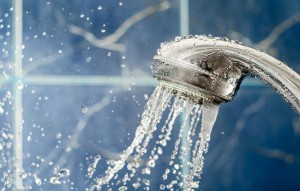In this segment, we will be defining hard water and the effects it can have.
 What is ‘hard water’ and why does it matter?
What is ‘hard water’ and why does it matter?
Hard water is typically defined as water having more than 1 GPG (grains per gallon) of dissolved minerals in it, generally consisting of calcium, magnesium carbonate, and/or manganese. It is formed when the water passes through deposits of limestone and chalk.
Why should it concern you?
When hard water becomes heated, the minerals re-crystallize and harden to the point of plugging pipes. When used for mundane purposes such as putting out fires or watering the lawn, the water would have to be pretty hard to cause a problem. For bathing, washing dishes and clothes, and even washing your car however, can cause some unforeseen issues. “Soap scum” for example forms when a light amount of soap mixes with hard water that cannot be rinsed off. Seeing a “ring” around the bathtub and sinks, unsightly spots on your dishes and even your car is evidence of hard water. Soap scum can remain on your skin even after rinsing. Skin irritation, diaper rash, and clogged pores are a result, in addition to becoming a home for bacteria. It can also clog the hot water heater, causing premature failure; a costly replacement.
Contact Sci-Chem Water Treatment at 407-301-4655 and have your water tested today!

Recent Comments